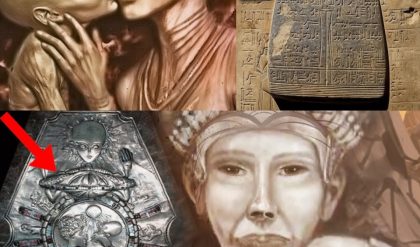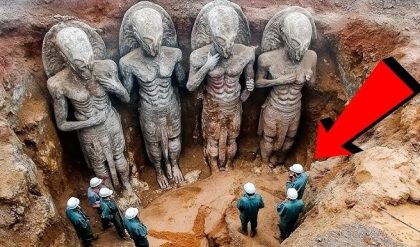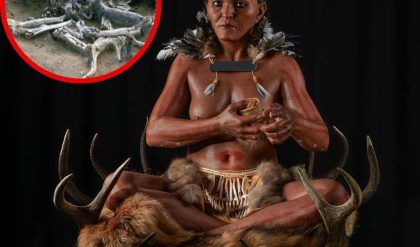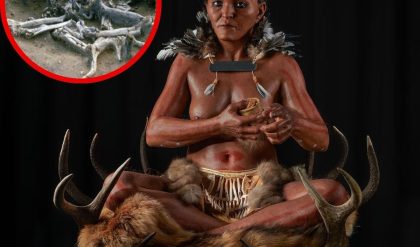In a groundbreaking archaeological revelation, long-lost treasures of ancient Egypt have resurfaced from the depths of the sea, reigniting global fascination with one of history’s most enigmatic civilizations. Among these rediscovered treasures is a monumental statue of the Egyptian cow god Apis, as well as other relics that had been submerged for what some believe to be over 100,000 years—a timeline that challenges conventional historical understanding. The discovery has sparked debates among historians, archaeologists, and theorists about the true age and extent of Egypt’s influence, and whether ancient Egypt’s legendary treasures could hold secrets far older than previously thought.
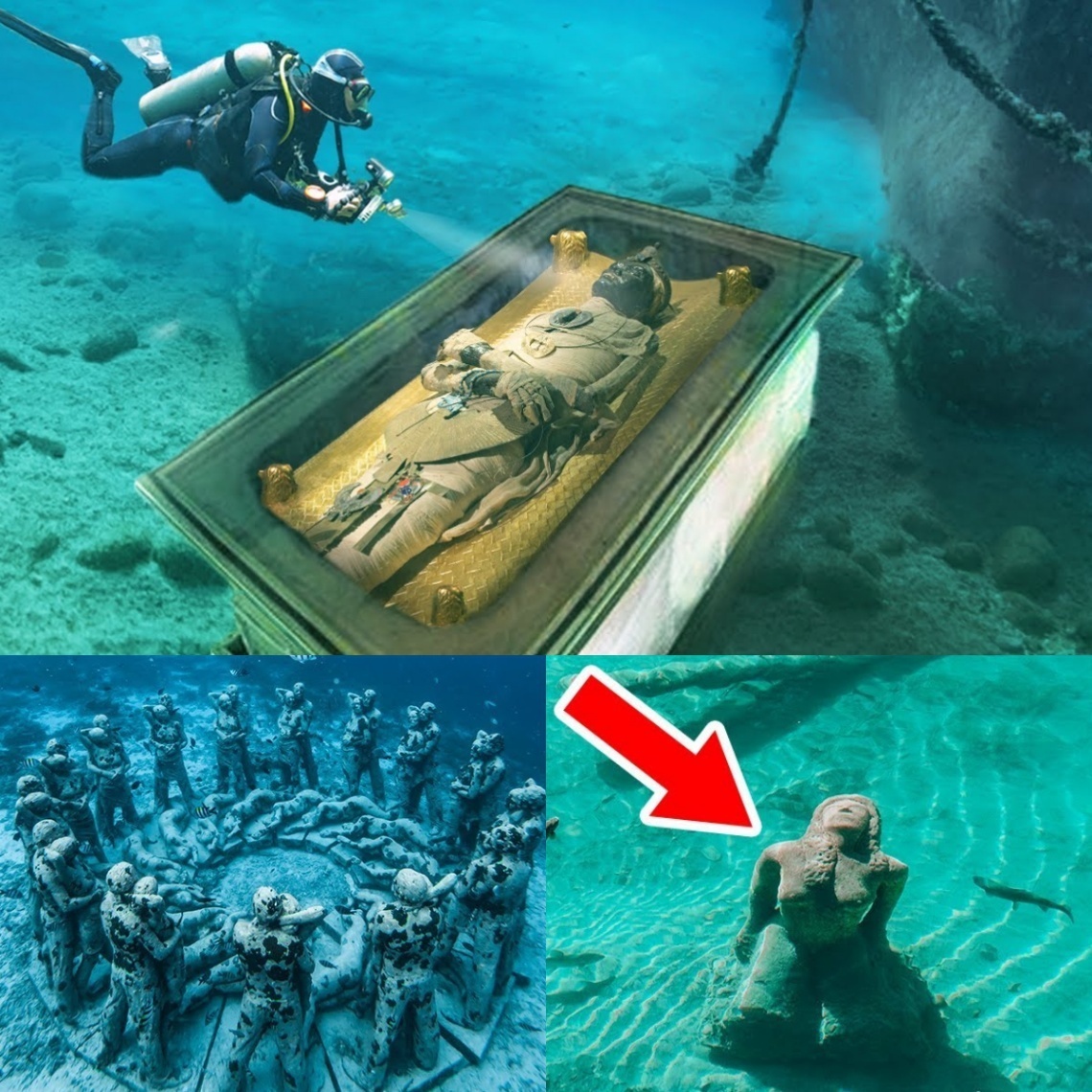
The Mythical Cow God Apis
The ancient Egyptian god Apis, depicted as a bull or a man with a bull’s head, was revered as a symbol of fertility, strength, and protection. In Egyptian mythology, Apis was a living god, represented by an actual bull that was housed in the grand temple in Memphis and worshipped during its lifetime. Upon its death, the sacred bull was mummified and buried in elaborate ceremonies.
Apis was also believed to be a herald of the god Ptah, the creator god, and later associated with Osiris, the lord of the underworld. Worship of Apis was central to Egyptian religious life, with grand statues and temples dedicated to his honor. The discovery of a statue representing Apis emerging from the sea marks a profound moment in understanding the religious significance and reach of this deity, potentially linking it to previously unknown maritime trade routes or ceremonial practices involving water.
The Underwater Discovery: Lost Cities and Treasures
The treasures were discovered off the coast of modern-day Egypt, near the ancient city of Heracleion (also known as Thonis), which was once a thriving port city before it sank into the Mediterranean Sea thousands of years ago. However, the significance of these new finds extends beyond Heracleion, hinting at older, possibly mythical cities whose existence was only hinted at in ancient texts.
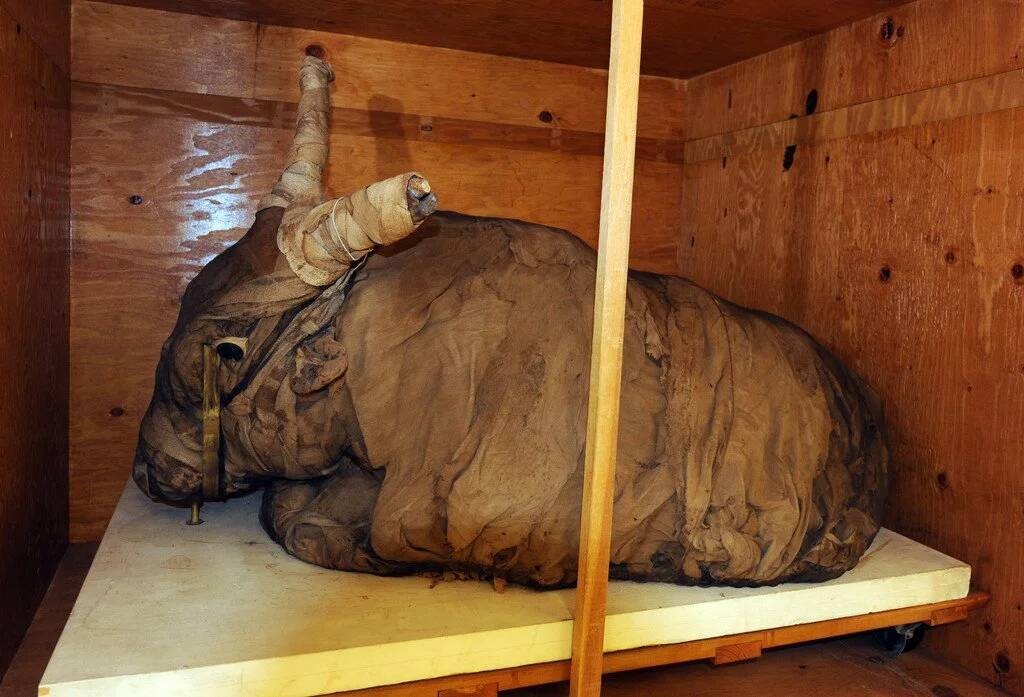
Among the artifacts recovered were massive statues, intricate gold jewelry, religious relics, and entire sections of ancient temples that were thought to have been lost forever. The scale of the discovery has led some researchers to speculate whether the treasures could be remnants of a civilization far older than we have ever documented—one that predates even the earliest known Egyptian dynasties.
The fact that these treasures have lain beneath the sea for an estimated 100,000 years has led to numerous theories about cataclysmic events, such as rising sea levels or powerful earthquakes, that may have caused entire sections of ancient Egyptian culture to be swallowed by the waters. While traditional Egyptology places the rise of Egyptian civilization around 5,000 years ago, this discovery has prompted some to reconsider long-held timelines.
A Connection to Lost Civilizations?
The idea that ancient Egyptian treasures have remained hidden under the sea for such a long time has rekindled interest in theories about lost civilizations—including the legendary Atlantis. Could Egypt have been connected to a much older, global civilization that possessed advanced technology and knowledge? Some scholars and theorists believe that this underwater trove could be evidence of a forgotten chapter in human history, where early Egyptians or their predecessors engaged in trade or cultural exchanges with other highly developed societies.
The potential link between these sunken treasures and long-lost cities also gives credence to theories about Antediluvian (pre-flood) civilizations, suggesting that Egypt may have inherited or even evolved from a civilization that existed before a great global flood—a notion supported by ancient myths and legends across different cultures.
Challenges to Traditional History
While the discovery of these treasures has sparked widespread excitement, it has also ignited controversy within the academic world. Many mainstream historians are cautious about accepting the idea that these artifacts could be over 100,000 years old, as this challenges the established timeline of human civilization and ancient Egypt’s rise to power.
If proven true, this could force a reevaluation of everything we know about the development of complex societies, their technological capabilities, and their interactions with natural disasters like floods or shifting landmasses. Some researchers suggest that advanced civilizations could have existed in an era much earlier than currently documented, only to be destroyed by catastrophic events that left little trace until now.
The Future of the Discovery
Excavations and explorations of the underwater site continue, with archaeologists working to uncover more artifacts and unravel the mysteries surrounding this ancient treasure trove. Advanced technology such as sonar mapping, underwater drones, and 3D imaging is helping researchers piece together the submerged cities and temples, offering new insights into ancient Egypt’s maritime prowess and possibly rewriting human history as we know it.
The statue of Apis, in particular, will undergo extensive study to determine its exact age, cultural significance, and how it came to rest in its watery grave. Researchers are also keen to understand whether the artifacts discovered alongside Apis were part of a larger religious or ceremonial complex, or if they were offerings made to the gods before the civilization was lost to the sea.
Conclusion: Unraveling Ancient Mysteries
The rediscovery of the Egyptian cow god Apis and other lost treasures from the sea has ignited imaginations across the world, bridging the gap between ancient myth and modern science. As researchers continue to study these findings, the question remains: Could these artifacts be part of a larger, older story about the origins of civilization on Earth? While much remains unknown, one thing is certain—the sea has yielded a treasure trove of secrets that could forever change our understanding of ancient Egypt and human history.

